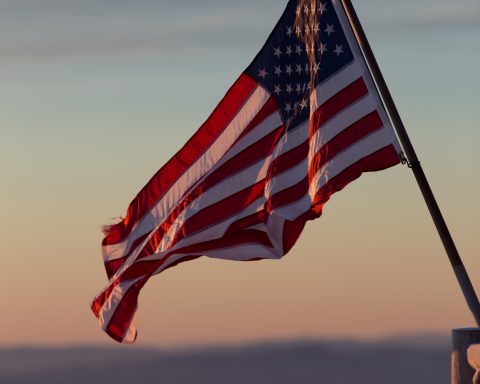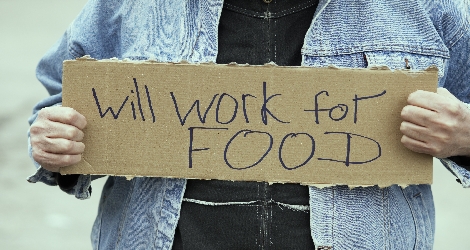A Sermon Based on Acts 27
July 31, 2011 by Lisa Larges Delivered at Central Presbyterian Church, Louisville, Ky: www.centralchurchky.org/Listen to Lisa Larges’ sermon:
Lisa Larges’ Sermon Part 1
Lisa Larges’ Sermon Part 2
Lisa Larges’ Sermon Part 3
Lisa Larges’ Sermon Part 4
[wpcol_1half id=”” class=”” style=””]
Ratio of the total square footage of the world’s Wal-Marts to that of Manhattan: 9 to 7.[1] Percentage of U.S. church attenders who say that experiencing mystery and awe in the presence of God is most important to them in worship: 16. Percentage who say that being moved to care for others is important: 11.The purpose of Acts chapter 27 is to take us from Acts chapter 26 to Acts chapter 28. Acts chapter 26 gives the account of Paul’s trial before Festus, the Roman governor, and King Agrippa, the great grandson of Herod. Paul exercises his right as a Roman citizen to be tried by Caesar, and so he is shipped off to Rome in chains. The book of Acts ends at chapter 28 with Paul under house arrest in Rome. Chapter 27 is simply the account of Paul’s harrowing voyage from Herod to Caesar.
It’s a story we don’t often read in church, first because we don’t often venture this far in to the Book of Acts, second because it is very long, and third because it is full of too many tricky place names.
Year by which the arctic will have its first ice-free summer: 2040.[2] Number of trees cut down each year for paper production: 4 billion.[3]The 44 verses of Acts 27 take us around the Mediterranean, span more than half a year’s time, and follow Paul on two sailing ships.
The narrative is as interesting for what is not found in it. Unlike most of the Book of Acts, here there are no miracles, no great speeches, and no conversions. It’s simply the story of a dangerous sea voyage ending in ship wreck.
Amount of arctic sea ice that has melted in the last 30 years: 400 thousand square miles, approximately the size of Texas.[4] Ratio of rubbish dumped in to the oceans to the weight of fish caught: 3 to 1.[5]One way to get hold of the story is to look at the four points in the chapter where Paul speaks. We’ve already read his first words of advice: “Sirs, I can see that the voyage will be with danger and much heavy loss, not only of the cargo and the ship, but also of our lives.”
Paul is on the ship as a prisoner, he is known for his itinerant preaching, and he learned a trade as a tentmaker. None of these, prisoner, preacher, tentmaker make him an expert at sailing. His extensive travels have given him some hard won experience sure, but, whatever the blow to Paul’s ego, in making the final decision the centurion puts more confidence in the judgment of the captain, the pilot, and the sailors.
From that point on, nothing at all goes right, and the captain and crew take ever more drastic measures just to stay afloat. Not long out they are hit by a nor’easter, and lose control of the ship. Gaining some temporary shelter behind an island they pull up the small boat they are carrying behind them and strengthen the ship’s hull by reinforcing it with ropes. Afraid of running aground they point the ship in to the storm and are again driven. Now they do everything they can to lighten the load, first throwing the cargo overboard. Still in danger the sailors next begin to strip the ship itself.
Average daily water consumption by individuals in the U.S.: 600 liters.[6] Average daily water consumption by the 1.8 billion persons worldwide who travel up to a mile for water: 20 liters. Number of school days missed worldwide as a result of water-related illness: 443 million.Finally at verse 20 we read: “When neither sun nor stars appeared for many days, and no small tempest raged, all hope of our being saved was at last abandoned.” So, to recap, the crew and passengers aboard the ship, numbering some 276 in all have lost their cargo, have resorted to tearing up the ship, and are hungry, weary, wet, and desperate. Having done all in their power they have at last exhausted all options and all hope.
Bearing all this in mind, we next hear from Paul at verse 22: Paul then stood up among them and said, “Men, you should have listened to me and not have set sail from Crete and thereby avoided this damage and loss.”
That’s just so endearingly Paul. Chief among life’s lessons should be learning when not to say “I told you so.” Fortunately, he is not thrown overboard and continues speaking: “I urge you now to keep up your courage, for there will be no loss of life among you, but only of the ship. For last night there stood by me an angel of the God to whom I belong and whom I worship, and he said, “Do not be afraid, Paul; you must stand before the emperor; and indeed, God has granted safety to all those who are sailing with you.” So keep up your courage, men, for I have faith in God that it will be exactly as I have been told. But we will have to run aground on some island.”
Percentage of Americans who said they were among the have-nots in 1988 and in 2007 respectively: 17 and 34. Percentage of worshipers who pray daily for themselves or their family members: 74. Percentage who pray daily for world peace or an end to war: 29. Percentage who pray daily for an end to world hunger or poverty: 26.So far Paul has offered two predictions: (1) “I perceive that the voyage will be with injury and much loss of cargo, the ship and our lives.” And (2), the amended version, “the ship will be lost but everyone will live.”
Let’s just pause and notice something. Paul was wrong. Let’s say that again, Paul was wrong. Notice that there’s a bit of a gap between what Paul thinks and what God will do. Be that as it may, Paul now offers up these words from God’s messenger as a source of hope and courage.
But not everyone is having it. The crew now believes they are nearing land, and so they put down four anchors. Under pretense of securing the line, several sailors put the boat back in the sea with the idea of escaping from the ship. But Paul offers a warning to the soldiers, “Unless these men stay in the ship you can not be saved.” Whether they believe this or not, nonetheless the escape plot is foiled.
As a new day dawns Paul speaks for the fourth and final time, “Today is the fourteenth day that you have been in suspense and remaining without food, having eaten nothing. Therefore I urge you to take some food; for it will help you survive; for none of you will lose a hair from your heads.”
Paul, brilliant orator, dedicated apostle, church founder, who as often as not can be verbose, bombastic, overbearing, and who can come off, as we have seen, as self-righteous, can also, from time to time, display what can only be called, tenderness. The Zen Master, Lin-chi said irrefutably, “When hungry, eat some rice, when tired, close your eyes.” “We are all hungry,” Paul says, “we should eat.” So all ate, and then threw all the remaining wheat in to the sea to further lighten their load.
Factor by which the price of wheat has increased in the past year: 2. Percentage change since 2005 in the worldwide price of food: 77. Average number of cookies a North American will eat in his or her lifetime: 35,000.[/wpcol_1half] [wpcol_1half_end id=”” class=”” style=””]
But we’re not quite done. Spotting land, the crew aim the ship for a small harbor, only to strike a shoal. The ship breaks up, and the soldiers prepare to kill the prisoners. The prisoners are their responsibility, and they might very well pay with their own lives if any escape on their watch.
But the Centurion, wishing to save Paul, his prize, orders that none of the prisoners should be killed. Either swimming or floating in on planks from the broken ship, all make for land. “And so it was,” reads the last line of the chapter, “that all escaped to land.” They come ashore in the rain, and as if they haven’t yet suffered enough, must now build a fire on the beach in the wet and cold. They soon learn that they have ship wrecked on Malta, and the Maltese prove to be generous hosts.
Average amount urban congregations provide in goods and services to their communities: $476,663.24.[7] Percentage of prisoners worldwide held in the U.S.: 24.This is a simple story of a ship wreck. No miracles, no grand oratory, no sudden professions of new found faith. Yet there is a moment where God intervenes. “Indeed,” the angel tells Paul, “God has granted safety to all those who are sailing with you.”
That angel may as well have said, “Paul, I have some bad news and some good news. The bad news is that all will be lost, the cargo, the food, everything on the ship, and then the ship itself, and you will be stranded on an island in the rain. The good news is that you will all be shipwrecked together.” Or the angel may have said, “Paul, I have some good news and some bad news. The good news is that everyone on board will live. The bad news is that everyone on board will live.”
Consider these 276 persons who share this tiny vessel on the raging sea. They are sailors, soldiers, prisoners, and passengers. Altogether they come from different social stations; different points in the far flung Roman empire; and have differing, sometimes competing interests.
This is not a morality tale of building trust and discovering friendship. Just as they are approaching land, with the end to their travail now in sight, the soldiers are prepared to kill the prisoners, and the sailors plot to abandon ship. In the midst of all of these divisions and competing interests God has only one word in the matter: “It will be everyone, or it will be no one.”
So it is that those aboard this ill-fated ship have lost everything except one another. They aren’t up a creek without a paddle; they don’t even have the canoe. Still God’s word remains; all you will have is each other.
Dollars spent annually on pet food by Europeans and Americans: 17 billion. Dollars it would take annually to provide basic education for all children worldwide: 6 billion. Dollars spent annually in Japan for business entertainment: 35 billion. Dollars it would take annually to provide clean water and sanitation worldwide: 9 billion.We live under the illusion of separation. Our economy grows through the promotion of self-interest. Various political and corporate agendas are advanced by playing one constituency off of another. We want to build a bubble of safety around ourselves to keep the bad news from our doors, and the vast, insatiable spendotainment throw-away consumption industrial complex conspires with us in the building. But we can’t pretend much longer that we don’t hear it—like a muffled drumbeat, like small, unwanted interruptions, like spidery cracks in the plaster. It seems that this little spaceship of a planet, on which we are all passengers, is in dire trouble. Whether measured by environmental:
Percentage of species of amphibians threatened with extinction: 30. Percentage of birds: 12[8] Coniferous trees: 25 Species of mammals: 25.[9]Economic:
Number of uninsured Americans: 47 million. Dollars spent annually on weapons worldwide: 780 billion. Dollars needed to provide annual basic health care and nutrition worldwide: 13 billion.Or political:
DEBT CEILING, anyone?The clock is ticking, the bubble has burst, the account is overdrawn, the wolf is at the door, the game is up, and our options are narrowing, our illusions vanishing.
Here is the bad news, and the good news. The bad news is this: all we have is each other. The good news is that all we have is each other.
The luxury of separation has long since slipped from us. The illusion that we can put our own interests above the common good is proving deadly, not just for some of us, but for all of us. So it is that God’s word comes to us over the raging of the storm, “I am the God of all of you, not some of you, all you have is each other.”
So it is that faith should be something that turns us toward one another, otherwise it will be no good to us now. The only way to begin the healing is together. The only way to rebuild, repair, repent, restore is together. This is the only miracle we get: “I am the God of all of you, not some of you.” All we have is each other. Let us learn and remember.
Photo by Roger Kirby.Notes
[1] All statistics are taken from Harper’s Index unless otherwise noted.
[2] http://www.independent.co.uk/environment/climate-change/arctic-summer-may-be-icefree-in-30-years-1662240.html.
[3] http://ecology.com/features/paperchase/
[4] http://www.causesofglobalwarming.net/global_warming_statistics.html
[5] http://marinebio.org/marinebio/facts/
[6] http://www.cawater-info.net/all_about_water/en/?p=745.
[7] http://www.philanthropy.iupui.edu/events/docs/WIMPS_2011/CnaanPaper.pdf
[8] http://www.biologicaldiversity.org/campaigns/overpopulation/extinction/index.html
[9] http://wwf.panda.org/what_we_do/endangered_species/
[/wpcol_1half_end]






Unbound Social